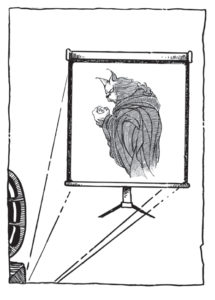No matter your party, it’s pretty safe to say that you feel beaten up after this last election. When one person alone can spend $277 million to get his candidates elected, we’ve all heard way too many ads, way too much news. And if you’re a Democrat or an Independent, it’s also pretty safe to say that you’re feeling baffled. How could someone known to be shady, under-handed, sexually abusive, politically dangerous, and prone to viciously attacking anyone who opposes him just been made President of the United States of America? Again!!?
Of course there are lots of reasons. To focus on one of them, I’m re-submitting an older post of mine, here. The statistics in it come from a book by Marsha Stout, PhD., who served on the faculty in the Department of Psychiatry at Harvard Medical School for 25 years. Her book is called The Sociopath Next Door.
Worldwide, 4% of the population — that means 4 out of every 100, or 1 in every 25 people — has no conscience, which is the clinical definition of a sociopath.
Stop and think about those numbers for a minute. 4 out of every 100, or 1 in every 25 people… could clinically be labeled sociopathic.
And while that statistic sounds ridiculously high the first time you hear it, after you think about it for a while — the ever presence of crime, the hard drug cartels, the ubiquitousness of bullying, the completely unnecessary wars started by heartless dictators over and over again in history, child and sex slavers, torture, rape — that statistic starts to make some sense.
Such a person can do anything –absolutely anything– without feeling guilty. It’s a brain wiring issue. They simply do not have empathy for others. And these are typically high energy, charismatic people, who wreck a great deal of damage in the world because the rest of us let them.
Yup. We let them. Since most of us can’t imagine hurting others without feeling guilt or shame, we completely miss what the sociopaths among us are up to. While we feel bad about eating the last piece of cake, a sociopath enjoys getting more than their fair share. A sociopath lives for getting more than their fair share. These folks are driven by power over others, not by ethics.
In some cultures, say Switzerland or Japan, where overt narcissism or bullying is frowned upon, it’s difficult for sociopaths to make much headway. But in cultures like ours, where bad boys are celebrated and outlaws become famous, a clever sociopath can take an express elevator right to the top. Particularly today. Now such a person can buy themselves TV stations and online media outlets. Now they can just lie and lie and keep on lying until no one can even remember what actually happened.
Unless we want the USA to be completely ruled by sociopaths from here on out, we need to stop letting them get away with murder. We need better rules and laws. And we need to enforce those rules and laws, or those among us who do not play fair are going to come out on top, every time, from here on out.
Everyone knows Trump didn’t win the election against Biden. Everyone knows the ‘Big Lie’ is exactly that. But we are still letting him hold our entire country hostage. Everyone knows there is no reason for Russia to annex Ukraine, but Putin is still getting away with waging a bloody, horribly damaging war on a neighboring country. And Gaza? Ghastly.
Sure, people without a conscience can be useful candidates if your aim is to pack the Supreme Court with conservatives or block all of the other party’s legislation. But, what happens in the long run? Do we really want to establish the precedent of whatever it takes to win, in the United States of America? That is not democracy, folks. That’s Putin’s Russia. The boss says do it, so we do it… (I heard a good joke the other day: “What’s the difference between Donald Trump and an old style mob boss? The old style mob boss had on a nicer suit.” )
We need to get beyond the childishly naive idea that everyone’s gonna play nice. The sociopaths among us are not ever going to play nice, and they constitute 4% of the population, all around the world.
So let’s make lying to the public for personal political gain HURT. Let’s make tampering with election results HURT. Let’s make political bribery HURT. Let’s make evading taxes and profiting from the Presidency HURT. Let’s make refusing to testify or pleading “The Fifth” over and over again in court HURT. Let’s make trying to wrest more power from the Presidency than our constitution allows, HURT.
Let’s stop pretending that the sociopaths among us are ever going to play fair, and start holding them accountable when they don’t.



